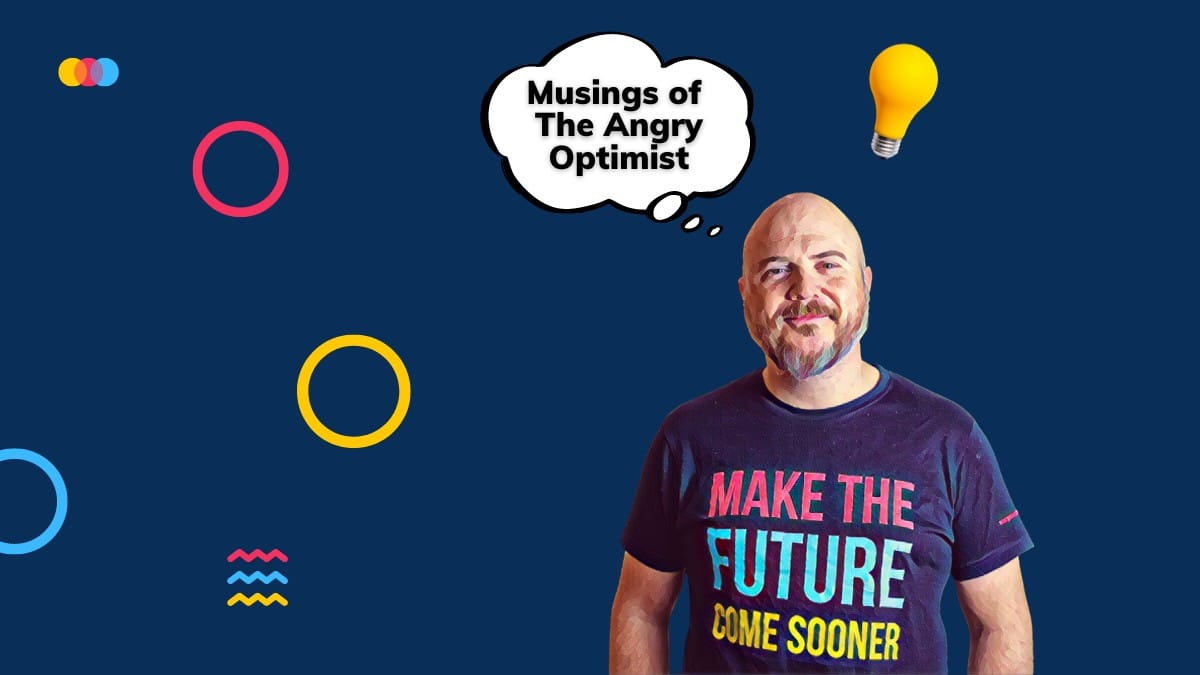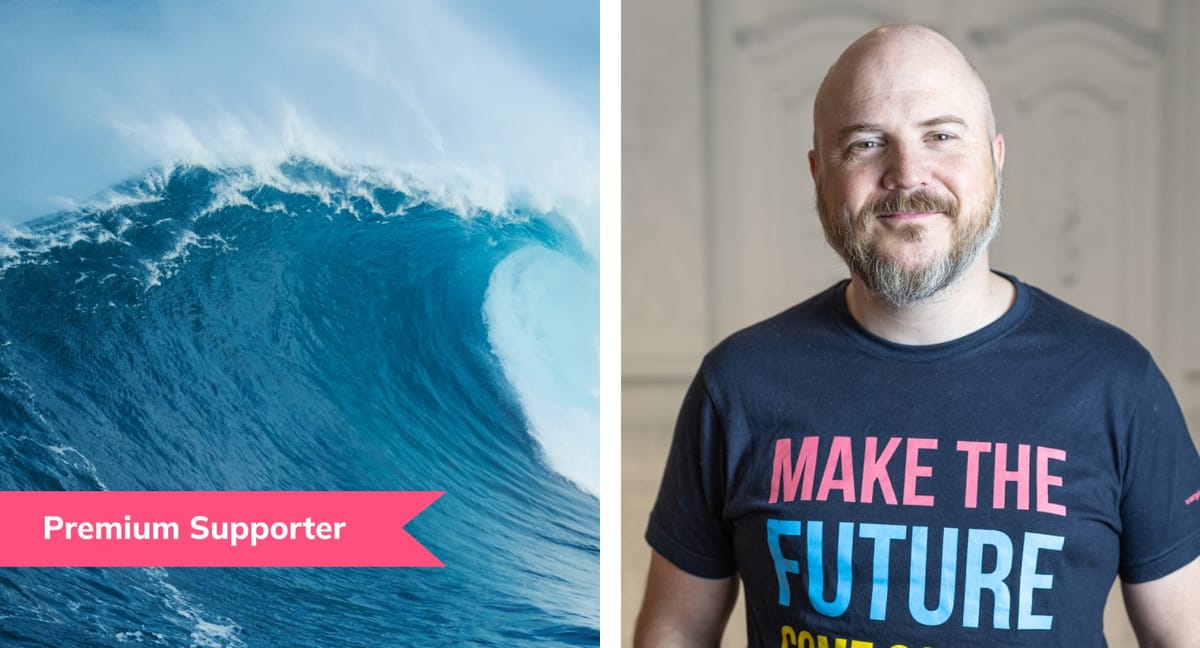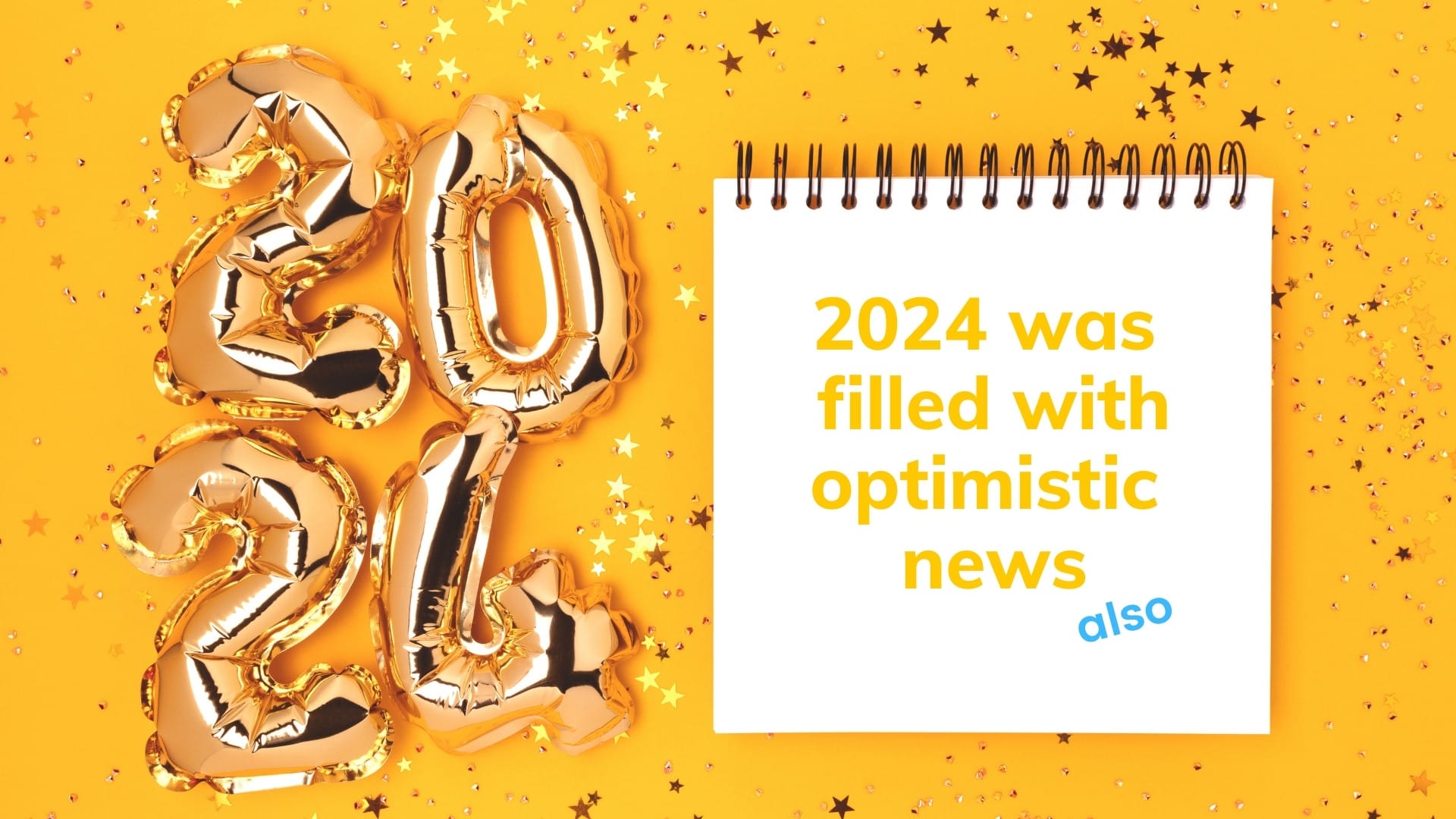
💡 Fact-based optimistic news from October
❌ UK closes last coal power plant - end of a 142-year era. 🤰 Obesity in the US is decreasing. 🧊 They are developing a technology to restore sea ice in the Arctic. 🦌 Saiga antelope goes from endangered to thriving.
Share this story!
If you are not a subscriber to our free, weekly newsletter with fact-based optimistic news, you really should be! 😊
The reason I'm convinced we'll manage to deal with climate change is that people are so incredibly clever.
Just take the news we published in October about Real Ice, which has a technology to restore ice in the Arctic. The process occurs in two steps:
- At the beginning of winter, seawater is pumped onto the ice to create an extra layer of ice.
- At the end of winter, the snow layer is recreated to protect the ice from solar radiation during the summer.
Millions of people have ideas and projects like this. When every project is at the starting point, it's not noticeable. That's why it can often feel like nothing is happening to counter climate change. Therefore, I think we'll be surprised by how quickly it suddenly progresses. A tsunami of climate solutions will sweep over us (which I wrote about a couple of years ago).
This doesn't mean we should lean back. Transitioning everything to be climate-friendly is a massive project. We need even more ideas. But we don't need to be afraid that we'll fail. We're far too clever for that.
It's worth noting that extreme poverty is back to the same low level as before the increase during the pandemic.
Scroll down a bit and you'll find all of this month's fact-based optimistic news.
Mathias Sundin
The Angry Optimist
Please help friends and acquaintances to hopescroll by sharing this summary with them.
💡 Fact-based optimistic news
🍛 Indian households' food expenses have decreased significantly
Indian households' food expenses have fallen to less than half of total expenditures for the first time since 1947. The proportion of households' total expenses going to food has decreased considerably across the country.
📊 The use of generative AI is growing faster than computers and the internet
Generative AI is used by 39 percent of Americans aged 18-64, just two years after its introduction. This is a significantly faster growth compared to personal computers and the internet in their early years.
📱 Facebook and Instagram algorithms affect user behavior but not their political views
The study found no noticeable effect on political polarization among users. Users' knowledge about the election was not affected by the change in feed algorithm. Self-reported voter turnout remained unchanged despite significant differences in user experience.
🧫 DARTS takes up the fight against antibiotic resistance
A major research project called DARTS has been launched to combat antibiotic resistance. Researchers are using new methods such as AI and microfluidics to find new antibiotics faster. Improved diagnostics can reduce unnecessary antibiotic use and slow down resistance development.
👩💻 Google paves the way for practically usable quantum computers
Google has built a quantum computer that makes fewer errors as it scales up. The company has passed an important threshold for error correction in quantum units. This paves the way for practically usable quantum computers in the future.
❌ UK closes last coal power plant - end of a 142-year era
The UK will close its last coal power plant in October 2024, marking the end of a 142-year era. Coal's share of electricity production has decreased from 40% in 2012 to zero in 2024, one of the fastest energy transitions in the world.
📉 Global extreme poverty has returned to pre-pandemic levels
During the pandemic, the number of extremely poor people in the world increased for the first time in a long while. Now the numbers have turned downward again and are reaching the same level as before the pandemic, below 9 percent.
🌍 Plan to provide 300 million Africans with access to electricity
Mission 300 is the name of the plan to provide 300 million Africans with access to electricity by the end of 2030. A total of 90 billion dollars is needed to succeed. The World Bank and African Development Bank are contributing 30 billion dollars.
🤰 Obesity in the US is decreasing
Obesity among adults in the USA is 40.3 percent according to a new report. This is a decrease from 41.9 percent in 2020. It breaks a trend of annual increases that has been ongoing since 2011.
🌟 Earth may NOT be swallowed by the sun in 6 billion years
A rocky planet has been discovered orbiting a white dwarf star 4000 light-years away. The planet is believed to have survived the star's red giant phase by moving to a more distant orbit. The discovery provides insights into Earth's possible future when the sun expands.
🩸 Stem cells from one's own body can cure type 1 diabetes
A 25-year-old woman with type 1 diabetes began producing her own insulin after stem cell transplantation. The woman has been insulin-free for over a year and can now eat whatever she wants.
☄️ Scientists show nuclear explosion can deflect asteroid
Scientists have simulated the effect of X-rays from a nuclear explosion on asteroids. The results show that the method can provide sufficient force to change the trajectory of large asteroids. The technique could potentially be used to avert threats from asteroids up to four kilometers in diameter.
🎈 Startup wants to cool the Earth with lots of balloons
Make Sunsets has released 82 balloons with sulfur dioxide into the stratosphere. Solar radiation management is controversial but could potentially reduce global warming quickly and cost-effectively.
🧊 They are developing a technology to restore sea ice in the Arctic
The company Real Ice is developing a technology to preserve and restore sea ice in the Arctic. The method uses renewable energy to pump seawater onto the ice and create extra ice layers. Testing of the technology in Arctic conditions will soon begin.
🌊 Breakthrough: Seawater becomes fuel without hazardous substances
The company Equatic has created a technology that extracts hydrogen from seawater without producing harmful chlorine. The method can simultaneously remove carbon dioxide from the atmosphere and store it in the ocean.
🦾 AI generates more innovative research ideas than experts, large study shows
AI-generated research ideas were judged as statistically significantly more innovative than human experts' ideas in a large-scale study. Over a hundred researchers participated in the study comparing AI-generated ideas with ideas from human experts across seven different research areas.
🔋 New battery technologies expand possibilities for renewable energy
Several new types of batteries are in development. Zinc-bromine flow batteries offer a safe and sustainable solution for energy storage. Organic flow batteries with solid materials increase storage capacity compared to conventional flow batteries.
🦌 Saiga antelope goes from endangered to thriving
The saiga antelope population in Kazakhstan has increased from 21,000 in 2003 to 1.3 million today. The species has been reclassified from "critically endangered" to "near threatened" on the international red list.
🌊 Minesto delivers ocean energy to the grid with tidal kites
Minesto's tidal kites have been generating electricity to the grid for three months. They generate electricity from ocean currents using a method similar to a kite flying in the wind. Test data shows that the technology is ready for commercial production.
📈 Solar energy grows fastest in Central and Eastern Europe
Electricity production from solar parks in Central and Eastern Europe increased by 55 percent during the first seven months of 2024 compared to the same period in 2023. Poland and Hungary account for the strongest growth in large-scale solar energy in the region.
🌾 AI-driven weed controllers reduce the need for herbicides by 90%
New technology reduces herbicide use by up to 90 percent. AI-controlled cameras identify weeds for precision treatment. Using less herbicide through precision applications can help lower costs for growers.
🦾 Industrial robots learn new skills on their own
Industrial robots are becoming more intelligent with the help of AI and can now perform increasingly complex tasks. Generative AI enables robots to perform more complex tasks, such as pouring liquids or turning knobs, and to learn new skills faster based on learned behavior.
📳 Mobile phones used to detect earthquakes
Android devices are transformed into a global network for earthquake warnings. The system provides valuable seconds of advance warning before an earthquake strikes. Over three billion Android phones worldwide can potentially contribute to the system.
🏭 Coal power in the richest countries peaked in 2007 - and has halved since then
OECD countries' coal power production has decreased by 52 percent since the peak in 2007. Over a third of OECD countries are now completely free of coal power. Three-quarters of OECD countries are on track to phase out coal power by 2030.
📦 Europe's first drone cargo airline can reduce freight costs by 50 percent
Dronamics becomes Europe's first licensed cargo drone airline, offering cost-effective deliveries. The company's drone, Black Swan, can carry 350 kg of cargo and fly 2500 km. The technology enables deliveries to remote areas and can reduce costs by up to 50 percent.
🌞 Australia leads the world in rooftop solar energy
Australia has installed rooftop solar panels on a scale that surpasses all expectations. More than a third of all households in the country now generate their own electricity from the sun. Home-based solar energy accounts for 11.6 percent of electricity production in Australia's main power grid.
Other texts
⚡ Complaining about new technologies' energy use is starting at the wrong end

Instead of complaining about the energy consumption of new technologies, like AI, we should start at the other end and make old technologies more efficient.
💡 Musings of the Angry Optimist: Creating small crises for oneself

I have created three mini-crises for myself. It has been difficult, but very liberating.
🧠 My extra AI brain makes me better

It's not about what AI will do for you. But how you will become better with the help of AI. When the AI knows you, everything is taken to a new level.
👩💻 AI will not replace humans - not even when it's superintelligent

It is said that AI will make you unemployed and in the long run turn humans into a useless class. That will never happen.
✉️ Get a dose of fact-based, free, optimism once a week
Every week, we send out a free newsletter with fact-based, optimistic news about technology, science, and human progress.
If you're not a subscriber yet, you are welcome to become one!
🎙️ Want to learn more about AI?
Book me, The Angry Optimist, to show how I use AI in my daily work and how you can do so in your organization.
Learn more at mathiassundin.org.
By becoming a premium supporter, you help in the creation and sharing of fact-based optimistic news all over the world.




